Editors and Editing Quotes
Most popular editors quotes
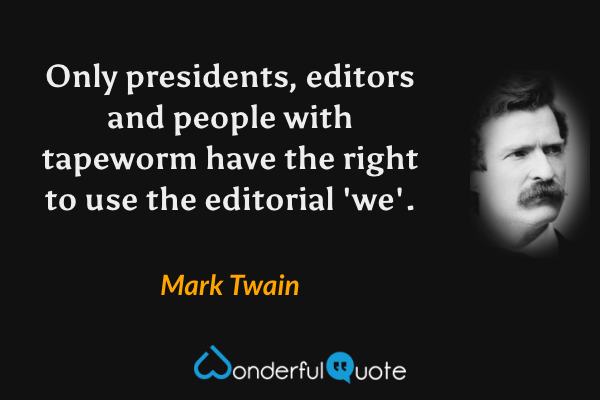
Only presidents, editors and people with tapeworm have the right to use the editorial 'we'.
For better or worse, editing is what editors are for, and editing is selection and choice of material. That editors— newspapers or broadcast—can and do abuse this power is beyond doubt, but that is not reason to deny the discretion Congress provided.
Editing is the same as quarreling with writers.

No passion in the world is equal to the passion to alter someone else's draft.

An editor is someone who separates the wheat from the chaff and then prints the chaff.
The editor doesn't make the news . . . but he does interpret it and shape it, as the conductor does. . . . Above all, he selects what's going to be on the program, which is one hell of a power.

Don't be dismayed by the opinions of editors, or critics. They are only the traffic cops of the arts.
There are editors, it is apparently an occupational hazard, who cannot leave a piece, or a line of a piece, intact—eating through a text, leaf and branch, like tent caterpillars, leaving everywhere their mark.
Prostitutes have clients, wives have husbands, Poets, you will understand, have editors.
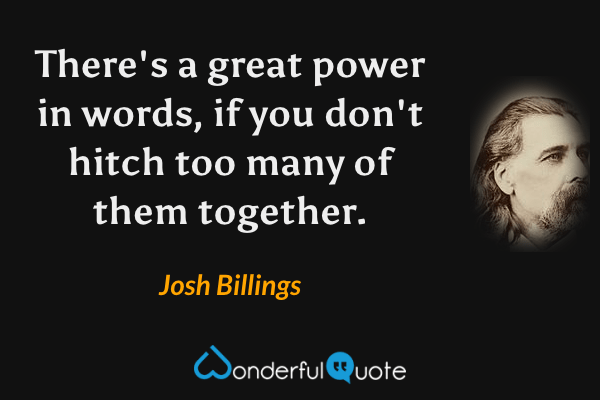
There's a great power in words, if you don't hitch too many of them together.

The poem will please if it is lively—if it is stupid it will fail—but I will have none of your damned cutting and slashing.
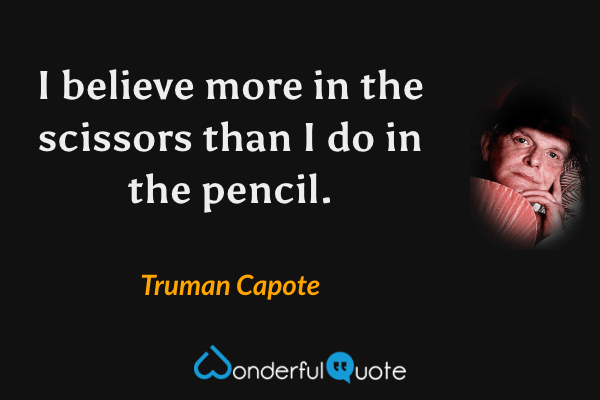
I believe more in the scissors than I do in the pencil.
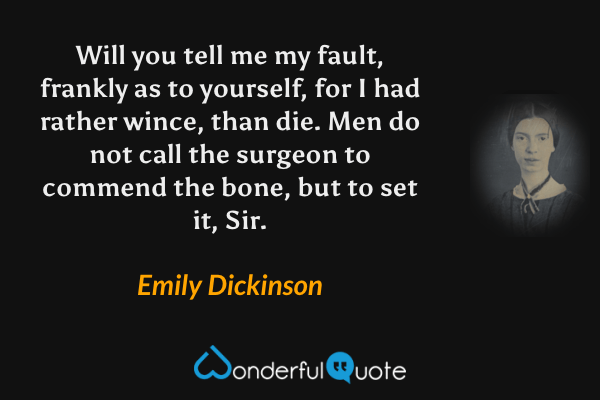
Will you tell me my fault, frankly as to yourself, for I had rather wince, than die. Men do not call the surgeon to commend the bone, but to set it, Sir.

When you see a manuscript as an editor...you're at ease in the book the way a surgeon is at ease in a human chest, with all the blood and the guts and everything.
A good, let alone a great editor is an obsessive autocrat with a whim of iron, who rewrites and rewrites, cuts and slashes, until every piece is exactly the way he thinks it should have been done.
Each manuscript laid on my desk was a carcass, to be stripped of its fat and gristle and made sufficiently presentable for the somewhat less than lustrous showcase in which it would eventually appear.

The most important lesson in the writing trade is that any manuscript is improved if you cut away the fat.
The most essential gift for a good writer is a built-in, shockproof, shit detector. This is the writer's radar and all great writers have had it.
Editing might be a bloody trade, but knives aren't the exclusive property of butchers. Surgeons use them too.
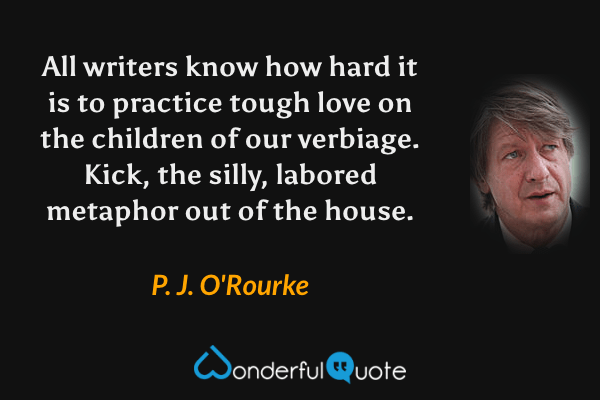
All writers know how hard it is to practice tough love on the children of our verbiage. Kick, the silly, labored metaphor out of the house.

If you here require a practical rule of me, I will present you with this: "Whenever you feel an impulse to perpetrate a piece of exceptionally fine writing, obey it—whole-heartedly—and delete it before sending your manuscript to press. Murder your darlings."
Editing is the same as quarreling with writers—same thing exactly.

Having a manuscript under Ross's scrutiny was like putting your car in the hands of a skilled mechanic, not an automotive engineer with a bachelor of science degree, but a guy who knows what makes a motor go, and sputter, and wheeze, and sometimes comes to a dead stop; a man with an ear for the faintest body squeak as well as the loudest engine rattle.

It's a little like going to the tailor or barber. I have never liked haircuts and I don't like being edited, even slightly.

Listen, there were creative writing teachers long before there were creative writing courses, and they were called and continue to be called editors.
Revise, revise, revise. I cannot stress this enough. Revision is when you do what you should have done the first time, but didn't.

It is my contention that a really great novel is made with a knife and not a pen.

Fighting clutter is like fighting weeds—the writer is always slightly behind. New varieties sprout overnight, and by noon they are part of American speech.
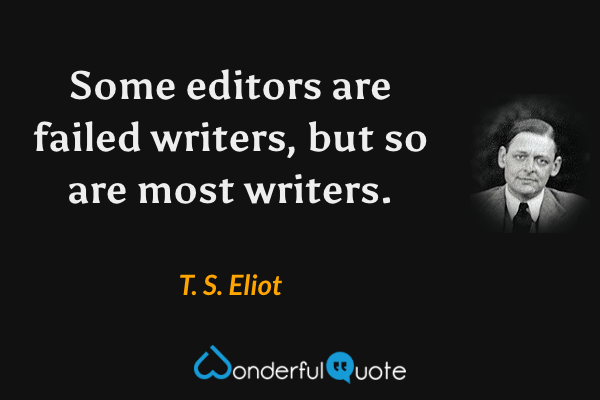
Some editors are failed writers, but so are most writers.


